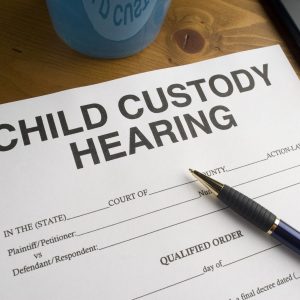Australian Family law deals with child custody through the Family Court, the Federal Circuit Court, and occasionally the Local Court. All of these courts deal with parental responsibility, child custody, along with financial and other arrangements for the child. However, since these cases step into legal grounds, you must reach out to an experienced and well-reputed custody lawyer to represent your case and navigate any legal complications.
Children are sometimes the only reason some marriages continue for years. In fact, in many cases, they are also the only link between the parents after their divorce or separation.
However, before we proceed to the intricacies of child custody cases, the first step is to consider any emergency signs in the marriage, specifically risks of violence or abuse. If you are in an abusive marriage or household, it is crucial that you contact the relevant authorities immediately. Moreover, if your children are also at risk, we can offer legal guidance and go over your options to protect them. It involves going over the relevant types of orders and the use of services such as childcare services. While many divorces don’t necessarily stem from abuse, the increased conflict and legal complications can often lead to it.
Family Law Consultation with a Custody Lawyer
Separation or divorce will occur after one or both spouses believe that the damage in their marriage is irreparable. There are laws surrounding family relationships, separation, child custody, and divorce. However, it can be difficult to keep up with the legal intricacies of different laws, especially at an emotionally vulnerable time like this.
At United Legal, your custody lawyer will provide comprehensive advice to you in relation to all relevant matters that we must address in light of a pending or actual separation. In many cases, separation can trigger the need to address and resolve the following –
- Division of property and liabilities
- Living and financial arrangements for any children of the marriage
- Getting a divorce
- Applying for and obtaining child-support payments for any children of the marriage
- Amending your will
These are some of the crucial steps that a custody lawyer will also go over with you.
Also Read: Property Settlement Mediation: Separation & Divorce
Financial & Living Arrangements for Children
For separating couples with children, they need to consider the sensitivity of the ongoing living arrangements of their children. Other than that, there are also emotional factors involved that will need to be addressed. Once you reach an agreement in relation to where the children will live and how much time they’ll spend with each parent, you can discuss it with your custody lawyers to move on to the next legal step.
However, it is important to note that mutual agreements with a mediator, if necessary, are usually the most amicable way to approach such situations. It reduces unnecessary conflicts and legal complications that may arise in Court.
Once there is a mutual agreement, you can file Family Court Consent Orders.
Sole Custody of Children in Australia
The legal term ‘custody’ of children falls under ‘parental responsibility’ in the Australian family law system. The two parents of the child share the ‘parental responsibility’ unless a Court orders otherwise. However, many separating parents seek ‘sole parenting’ or ‘sole custody’ orders from the court to restrain access to the other parent.
The concept of parental responsibility in Australia exists in ‘Division 2 – Parental responsibility of the Act. Section 61B defines the term as having all the duties, powers, and authority according to the law that parents have in relation to their children. It includes but isn’t limited to –
- Making decisions about the child’s religion, education, and upbringing
- Taking any necessary disciplinary or other measures for the child
- Consent in the child’s adoption
- Applying for a visa, passport or other formalities for the child
- Representing any legal proceedings on behalf of the child
Equal Parental Responsibility for Both Parents
It is technically a legal presumption that both parents will share equal shared parental responsibility for any and all children under the age of 18. Hence, when the Court grants a parenting order, the Court must act subject to the presumption that the shared responsibility is in the best interest of the child.
Section 60CC offers extensive directions to the court regarding what matters need the Court considers when determining the child’s best interest. At the same time, the presumption of shared responsibility can often be rebuttable. It implies that with sufficient evidence of one parent projecting irresponsible or harmful behaviour towards the child or their spouse, the Court, under Section 60CG, may refuse to recognise their shared responsibility when making parenting orders.
Hence, it also creates a strong case for sole custody to ensure the safety of the child. Moreover, it is important to note that the term ‘equal shared parental responsibility’ refers to the allocation of parental responsibilities. It doesn’t imply that both parents must allocate an equal amount of time and responsibilities toward their child. Similarly, a ‘sole parenting order’ might only extend to certain aspects of the child’s life.
An example can include one parent with sole custody with respect to education and religious involvement. However, both parents will share parental responsibility for all other matters.
Parental Orders With A Custody Lawyer
A separating or divorced couple cannot argue about how to parent their child after the separation or divorce. Hence, they may seek help from the Federal Circuit and Family Court of Australia (FCFCA) to legally decide on certain matters relevant to the child. The FCFCA will hear submissions from both parents and hand down ‘Parenting Orders.’
However, these orders are available only after the parties attend a Family Dispute Resolution Conference, where a mediator will try to bring the parties to a mutual agreement.
It is important to note that a parenting order is not the same as a consent order. It is, instead, a legally binding written agreement between the parents, which they file in Court. Moreover, it divides the responsibility of the child after the separation or divorce. Both parents must continue to carry full parental responsibility for their child until the Court makes any changes in terms of the responsibility. While the Court may acknowledge the shared parenting responsibility, it doesn’t presume or dictate the amount of time each parent spends with their child.
Claiming Sole Parenting Orders or ‘Sole Custody’ with A Custody Lawyer
 A parent may seek an order from the Court claiming ‘sole parental responsibility.’ However, the Court requires sufficient evidence to prove that the other parent is incapable of safely and adequately carrying our parental responsibility. In such cases, the decision will rely on the best interest of the child.
A parent may seek an order from the Court claiming ‘sole parental responsibility.’ However, the Court requires sufficient evidence to prove that the other parent is incapable of safely and adequately carrying our parental responsibility. In such cases, the decision will rely on the best interest of the child.
An order for ‘sole parental responsibility may provide one parent with the following –
- The sole responsibility for some or all aspects of the child’s life. They will not require any consultation from their former spouse with respect to their legal parental responsibilities towards their child.
- The child lives with one parent exclusively
- The Court will decide the extent of contact with the former spouse.
However, it is important to note that this order is not likely to entirely disallow one parent from access to their children unless there is sufficient evidence to prove the child is in danger because of the parent.
Moreover, there are also other orders for ‘supervised contact.’ It indicates that third parties such as grandparents and other family members will supervise any and all meetings between the parent and child in cases where the parent may present some level of danger for their child.
All parenting orders can either exist on an interim or a final basis. However, both can undergo amendments upon later applications to the Court.
Individuals Eligible for Parenting Orders
Considering the majority of custody cases, the outcome significantly relies on the situations prior to the parties filing an application in the Court. Hence, you must obtain legal advice and prepare yourself with relevant information before commencing Court proceedings.
There are three categories of individuals who are eligible to file for parenting orders –
- Parents of the child
- Grandparents of the child
- Any other individual who is concerned for the welfare of the child. However, there can be many relevant factors that impact the eligibility of the individual in this category.
If you fall under one of these three categories and want to file a case for ‘sole custody,’ you need an experienced custody lawyer to represent your case.
Talk to a United Legal Custody Lawyer Today
Understandably, at times like this, many people who face these issues simply don’t know where to begin resolving these issues. To help you navigate these difficult times, we offer an initial family law consultation with one of our specialist Canberra custody lawyers to discuss your situation and educate you about your available legal options. It is obligation-free and completely confidential.
At the end of the initial consultation, your custody lawyer will have a much clearer understanding of any specific or immediate issues that you may need to address. Moreover, there will be legal options available to progress your matter towards a favourable final outcome.
Talk to one of our custody lawyers today.







